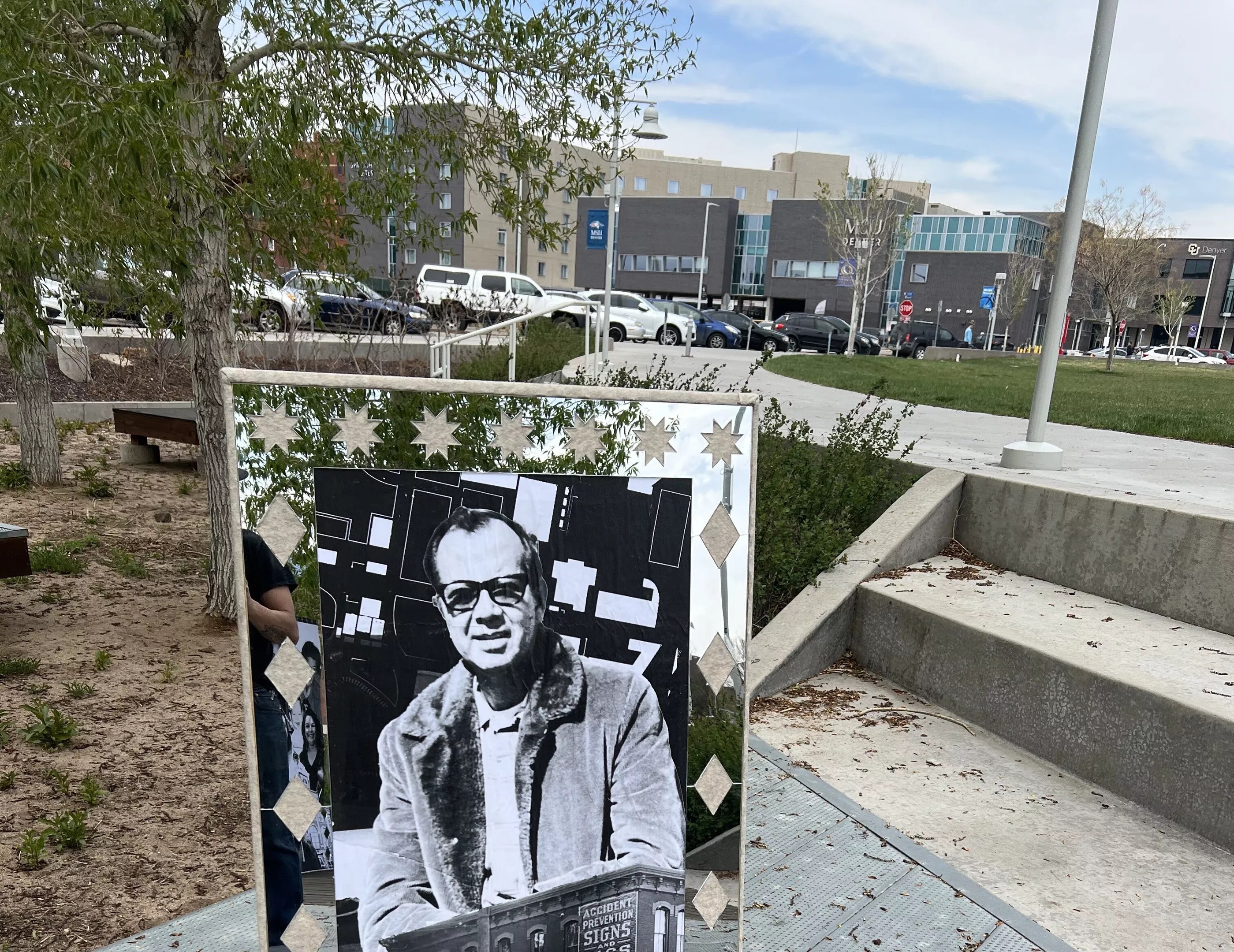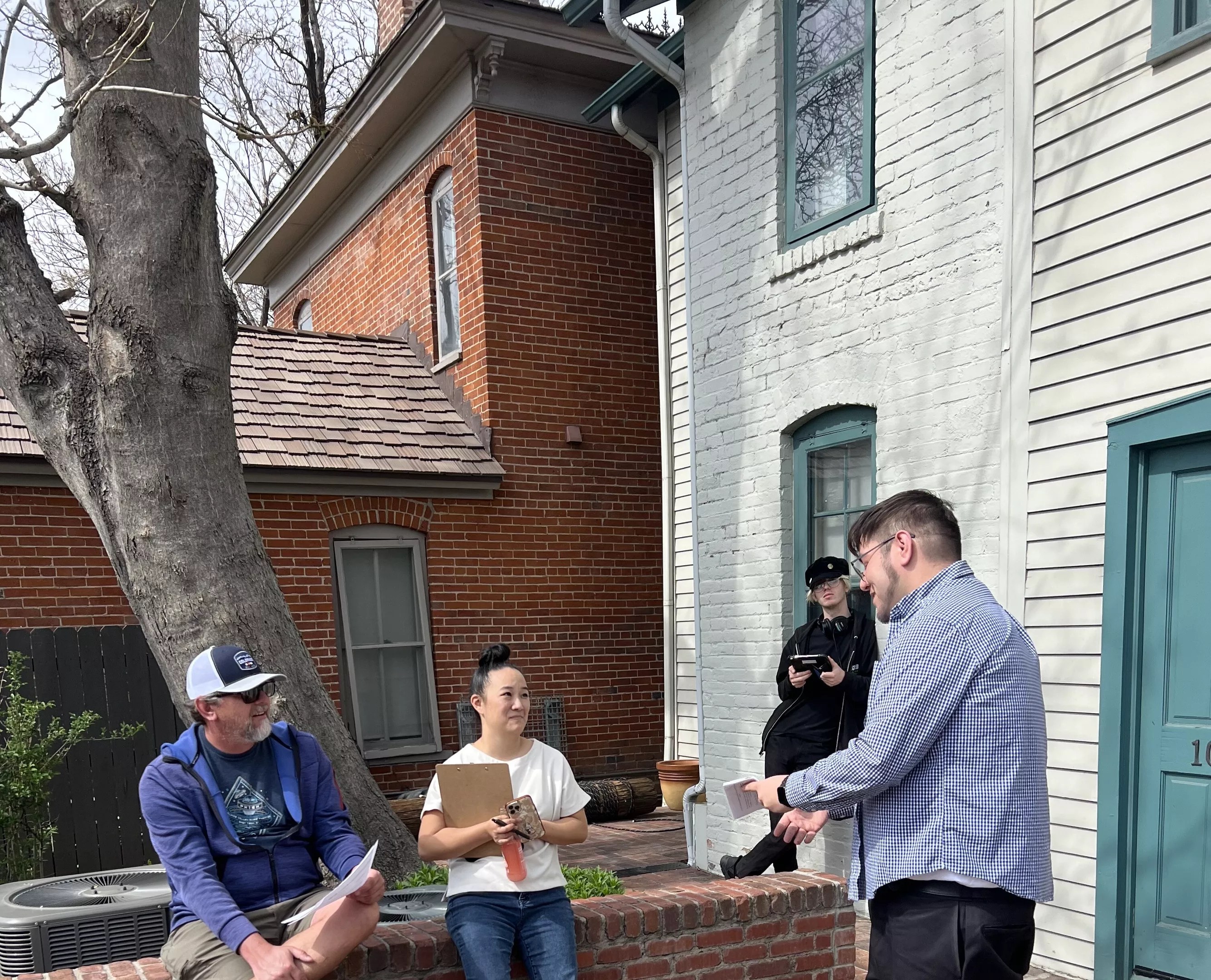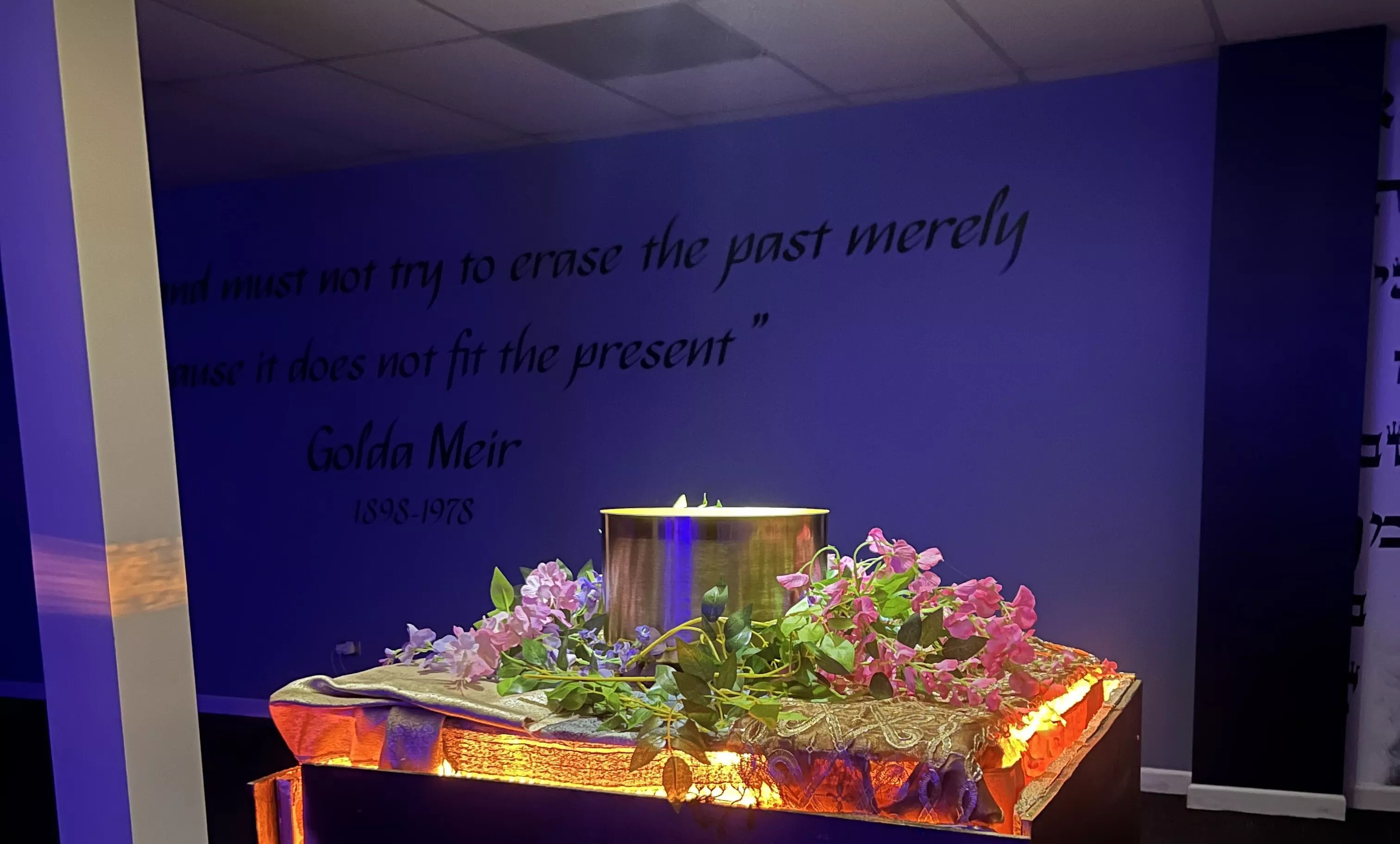
Courtesy of James Lopez

Audio By Carbonatix
Immersive creator James Lopez has long been drawn to places where history runs just beneath the surface, and few places hold more untold stories than Denver’s Auraria Campus.
Growing up in Greeley, Lopez said he felt disconnected from his cultural roots, a result of generations being encouraged to assimilate for safety. That personal longing for connection led him to Auraria, where cultures once thrived at the confluence of two rivers before being displaced as Denver grew.
“Once you learn about the displaced Aurarians, the Indigenous community and understand that before Denver was a city it was the anchor point between two converging rivers, you see there’s so much culture that’s been forgotten,” Lopez says. “How do we explore this land that is in the center of Denver and feels both like this attractive place to go, but also doesn’t feel like home? There’s been this really interesting cycle of invitation and displacement that really attracted me to Auraria.”
Lopez’s passion for telling these layered stories culminates in An Auraria Parable, a new immersive experience produced by DCPA Off-Center in partnership with his company, the Exposure Project, and Auraria Campus. The experience invites audiences to journey across the campus, guided by performers, art installations and audio storytelling, to uncover the histories – both joyful and painful – that shaped the land.

One of the stops made by attendees during An Auraria Parable on the Auraria Campus.
Courtesy of James Lopez
“We’re in such a politically divisive time,” Lopez says. “There’s not a lot of opportunities to create conversation around difficult topics. An immersive piece is a great space to create an opportunity for people to have an empathetic connection with an experience and then give them an opportunity to express their personal interaction with it.”
At its heart, An Auraria Parable asks a simple yet profound question: What does it mean to call a place home? The production employs magical realism techniques and weaves together various eras of Auraria’s history, from its time as Indigenous land to the displacement of Hispanic families in the 1970s to its current status as a bustling educational hub.
“What we want to do with this project is to get people to understand the complexity of land – not just the land of Auraria, but everywhere that they go,” Lopez says. “We want people to understand that there’s always a deeper story there.”
The idea originated during the pandemic, when Lopez and his creative partner, Jenny Filipetti, pitched a show called Don Quixote de Auraria to Off-Center. Though the initial plan proved too costly, it planted a seed. When the Auraria Campus later approached Off-Center about creating a community-centered event, Lopez revived and reimagined the concept to focus on authentic local histories rather than fable.
Lopez and his team spent a year building the show, beginning with a series of “story-sharing events” rather than traditional storytelling sessions. “We didn’t want to archive people’s stories for our own use,” Lopez said. “It was about creating a safe space where community members could tell us what they wanted and needed to express.”

Some of the team behind An Auraria Parable at work.
Courtesy of James Lopez
From those gatherings, the creative team identified key themes and partnered artists with community members to co-create installations and performances. Ensuring true collaboration – not top-down storytelling – was critical.
“In a lot of projects, especially with big institutions, there’s this colonialist, white saviorism approach, where organizations try to make themselves feel better by documenting people’s stories and then archiving them somewhere,” Lopez says. “We wanted An Auraria Parable to be a more inclusive community collaborative project. Instead of us dictating the stories, the show provides a platform for people to tell the stories they want to share.”
The experience is designed for groups of up to forty participants, who are randomly split into smaller groups and taken on unique journeys through the campus. While every participant will encounter all major elements, the order varies, allowing each person a slightly different lens on the story.
The journey covers approximately a mile to a mile and a half of walking, beginning at the amphitheater on the historic Ninth Street corridor – the future site of a new Peace and Healing Garden dedicated to the displaced Aurarians – and winding through the heart of the campus to key locations like the Tivoli Student Union. The team prioritized accessibility throughout, even redesigning parts of the route to ensure ADA compliance.
Performers include students and local artists with direct ties to the campus, reinforcing the production’s deep community roots. Throughout the experience, participants are asked to document their reactions and feelings, culminating in a facilitated conversation led by Rowena Alegría, the former chief storyteller for the city and county of Denver.
“Rowena will lead a conversation at the end of the performance to bring everything back to reality and discuss how people connect with the stories or where the tension exists,” Lopez says. “One of the things I’m excited about is that it’s not all happy. There are a lot of really difficult conversations that come out of this, a lot of tension and generational trauma that has been miring how people are interacting with each other, but there’s never been a space to really talk about that. We really want some of these difficult conversations to come up so we can figure out a way forward.”

The experience is designed for groups of up to forty people, who are randomly divided into smaller groups and led on unique journeys around campus.
Courtesy of James Lopez
Ultimately, Lopez hopes that An Auraria Parable not only connects audiences with Denver’s hidden histories, but inspires them to recognize the power of storytelling in their own lives.
“These stories exist, but without storytellers, they don’t go anywhere, and nothing happens,” Lopez says. “We really want people to understand the power of story is not just in listening, but also in sharing. The goal is to get people to understand their empathetic connection to the land, but also empower them to share their own stories and grow from the experiences that we’ve had.”
An Auraria Parable, 11:30 a.m. and 4 p.m. Saturday, May 10 and Sunday, May 11, Auraria Campus, 906 Curtis Street. Tickets are $5; learn more at denvercenter.org.